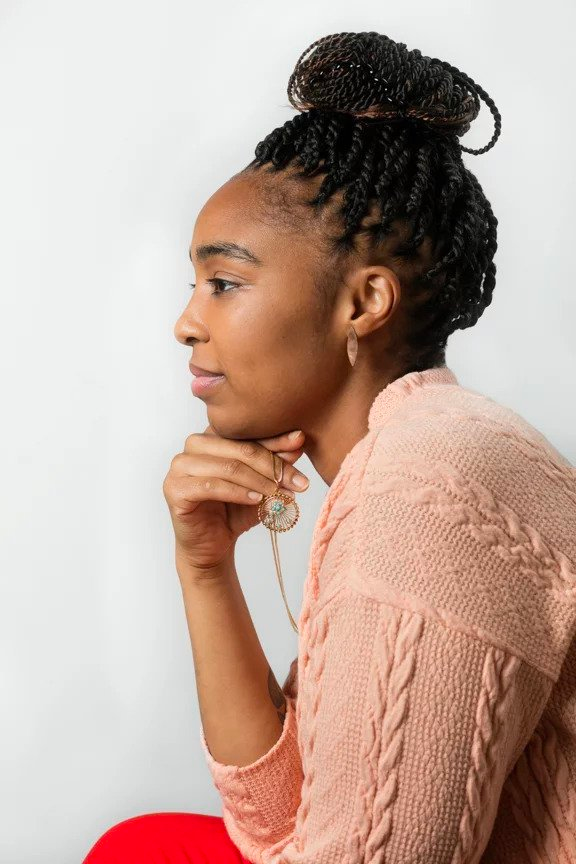
Born in Zaria, Nigeria, Hafizah Geter is a Nigerian-American writer and editor. Hafizah’s poetry and prose have appeared in the New Yorker, Tin House, Boston Review, Longreads, and McSweeney’s Indelible in the Hippocampus, among others. She lives in Brooklyn, New York.
The mothers became targets.
Hanging on clotheslines, bibs
of the barely fed.
Children, countries born
split in two—firstborns
whose first steps aborted
their sisters, brothers, the fresh bread
of their love language,
children the English
tearing sphincters in two.
The mothers came by boat,
with wings, forgetting
their own mothers’ uteruses, singing
praises to Allah, they came over and over again
until it could not matter that so-and-so had died,
we were the nicknames escaping
their bellies, the translation between
stay and never arrived.
Husbands, uncles, we were
wives, illnesses, pawpaw seeds,
only things that could save them,
sickle cells that knew better
than to touch. Visible
only in their dialect, they spoke to cousins,
wired money, forgave ancestors
we couldn’t trust.
They stopped speaking to us
in our birth language until we became new
dictionaries, became the consonants
of the Constitution they studied,
our first words forgotten
artifacts in our home
countries. They were the ones
whose fathers had died
in the milt of language,
without daughters.
In America, we were memories
without accents or consensus,
lambs that couldn’t be traded
for milk, meal, or honey,
the fact of our bodies
in America their new Quran.
And, oh, how they moaned,
how they starved, sucking their teeth
between King’s English, yelling for us
to stop playing immigrant and go
get naturalized.
Testimony
for Sandra Bland, 1987–2015
After the miscarriage, she moved to Waller County
wearing the ghost of motherhood
and wanting to make old wounds foreign.
In my bedroom, I read aloud the list
of her contusions, watched an officer
drag her from her car over and over again.
As if the humiliations would never be done,
there were typos in her autopsy report.
The words: no signs of struggle.
I thought: her body is my body, is a church
set fire, is the toil that makes the land,
a jail cell, light as a paper bag,
the sound my father makes
when, after so many years, he says my mother’s name.
Twenty-eight,
they split her open where slaves grew
cotton at the banks of the Brazos and students
at Prairie View A&M can barely vote
and laid her bare—a coroner’s wishbone
carved in her chest.
In Waller County, they still segregate
their cemeteries, name
some murders suicide.
They fire their police chief,
vote him Sheriff.
A Nigerian proverb
that when you lose your bridge,
climb down the mountain.
Instead, my mother grabbed
the Atlantic. Enough for a path
to carry daughters.
Every mile of seabed leapt over
used to form statues
of her brothers
in her mind. On her back,
I slept a journey.
She whispered, leave
our language behind, afraid
of an old country
on my tongue.
In America,
feet never dried.
Half-breed turned hemlock.
My mother, my rope
through the sea, my vine.
I arrived, language’s orphan,
a two-citizen child, no country.
Wake, a dead woman’s
daughter, homesick with no home
to ill towards, listening
for what English does
to my blood.
Portrait by Beowulf Sheehan
